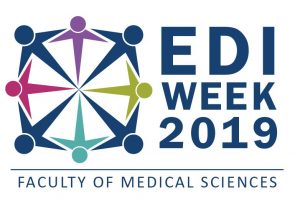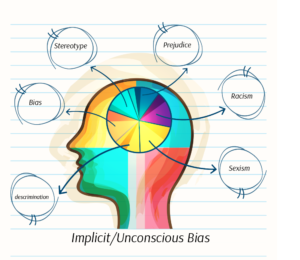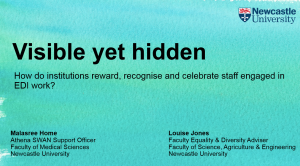 FMS is holding its very first Equality, Diversity and Inclusion Week – why not come along and get involved?
FMS is holding its very first Equality, Diversity and Inclusion Week – why not come along and get involved?
We are holding the Faculty’s first EDI Week for our staff and students to celebrate our recent Athena SWAN Silver Award for our work towards gender equality. There will be a range of activities and events that not only reflect on our recent achievement, but consider where we go from here in order to provide more inclusive work and study environments that give everyone equal opportunity to succeed.
Take a look at what is on, and book early! We hope to see you at one of our events!
#FMSEDIWeek19
21st January:
- Why does EDI matter? – 12-1pm, The Boardroom
We launch the week by hearing from members of the senior leadership team about why EDI is important to our Faculty and the people who work and study here. Read more and register.
X - EDI and TechNET – 1-2pm, The Boardroom
Members of our technicians network talk about how EDI is central to the work that they do both in the Faculty and across the University. Read more and register.
X - How to embed EDI in the Professional Pathway? – 2-3pm, The Boardroom
Our Director of Faculty Operations, Katharine Rogers, will talk about the new professional pathway and how EDI is being embedded into its development. Read more and register.
22nd January:
- EDI at NUMed Malaysia – 10-11am, Leech L2.9
Come and meet Chris Baldwin, CEO and Provost at NUMed, to find out more about their approach to EDI in Malaysia. Read more and register.
X - Mindfulness – 12.30-1.30pm, Leech L2.8
An introductory session led by our very own Michael Atkinson. Read more and register.
X - EDI Bites: What is Athena SWAN? – 12-1pm, The Boardroom
Our EDI Team explains what Athena SWAN is, what our Silver Award means, and what our plans are for progressing gender equality over the next four years. Read more and register.
- Athena SWAN: An institutional perspective – 3-4pm, The Boardroom
Judith Rankin, the Dean of EDI, will talk about the university’s application for a Silver Award renewal, which will be submitted in April. Read more and register.
23rd January:
- EDI design principles for FMS – 12-2pm, Colin Ingram Seminar Room (IoN)
Jane Richards and the Good to Great (G2G) Team hold an interactive session to hear your views about how EDI should guide FMS in the future. Read more and register.
X - Why should we become conscious of our Unconscious Biases? – 2-3pm, Leech L2.2
Tom Smulders and the IoN EDI Team run an introductory session about unconscious bias and how to combat it. Read more and register.
24th January:
- EDI Lunchtime Fair – 12-2pm, the Atrium/Entrance to the Medical School
For staff and postgraduates to find out more about different networks, mentoring schemes, support for wellbeing, and get a chance to speak to EDI representatives. Light bites provided. Please register your interest for catering purposes.
X - Athena SWAN Celebration & Unveiling – 12.45, Entrance to the Medical School
The Pro-Vice Chancellor of FMS, David Burn, will unveil the Faculty’s Athena SWAN Silver Award to mark the achievement that the award represents.
25th January:
- ‘For Families’ Launch Event – 10.30am-12pm, David Shaw Lecture Theatre
Event jointly hosted by NU Women and NU Parents to launch NU’s new family-friendly initiative, update on its progress, set out plans for the future and take feedback and questions. Read more and register.
X - Friday Fizz and Feedback – 4-5pm, The Atrium
Join the Faculty EDI team for a glass of celebratory fizz and tell us what you thought of our first EDI Week, or what you’d like to see next year at EDI Week 2020! Bucks fizz and non-alcoholic sparkling provided. Register your interest for catering purposes here.



 In this instalment of our blog series on projects within the University that have been supported by the
In this instalment of our blog series on projects within the University that have been supported by the